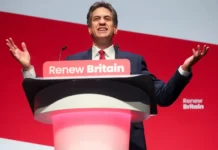The national health insurer’s boardroom battles over a lucrative medical plan for secondary schools have escalated after the board sanctioned the CEO.
National Health Insurance Fund (NHIF) Board Chairman Lewis Nguyai yesterday described CEO Peter Kamunyo’s decision to cancel contracts with 17 healthcare service providers for school coverage as insubordination, and said the board has called a meeting to hear his explanation.
Mr Nguyai cited section 30 (3) of the NHIF Act, claiming that only the board has the authority to terminate a health service provider’s contract, and claiming that the decision must be reversed “to protect the fund against unnecessary litigation from the affected firms.”
According to Section 30 of the NHIF Act, “the board may revoke any empanelment of a healthcare provider under this section at any time.”
Mr Nguyai stated that when President William Ruto swore in the six judges on Wednesday, he stressed the importance of operating within the law, and that NHIF is no exception.
“The President himself said he will operate within the rule of law. NHIF can, therefore, not be an exception. You cannot just take a pen and chase away service providers in total disregard of the law,” he said.
According to an internal memo dated September 7, Mr Nguyai wrote to the CEO seeking an explanation for the contract cancellations, but the response had yet to be received as of yesterday.
“The purpose of this memo is to request a full list of healthcare providers who in the past nine months have had their contracts terminated or revoked, including the latest list of 17 healthcare providers,” reads part of the memo.
Mr Nguyai directed the CEO to rescind any contracts that had been terminated or revoked and to follow due process.
When contacted, Mr Kamunyo stated that the contracts of the 17 hospitals would not be renewed until the investigations were completed.
“The hospitals still form part of the panel of healthcare providers under NHIF and upon completion of investigations, they will be issued with a complete contract,” he said.
He also pointed out that other old contracts for 2018-2021 lapsed and NHIF has been renewing them.
Mr Nguyai warned that the CEO’s actions are likely to have an impact on the provision of health services, undermining the fund’s mandate of providing universal health coverage.
Former President Uhuru Kenyatta introduced the cover during his second term as part of his administration’s Big Four Agenda of providing universal health coverage.
Under the EduAfya scheme, the government pays Sh1,350 to each student.
To make the scheme’s implementation easier, the Education Ministry contracted NHIF to provide medical insurance to students, easing the burden on parents and guardians.
The amount is deducted from the learners’ capitation in order for them to receive outpatient, dental, inpatient, optical, emergency, road rescue, and international treatment.
This is part of the Sh64.4 billion set aside for free day secondary education through June 2023.













